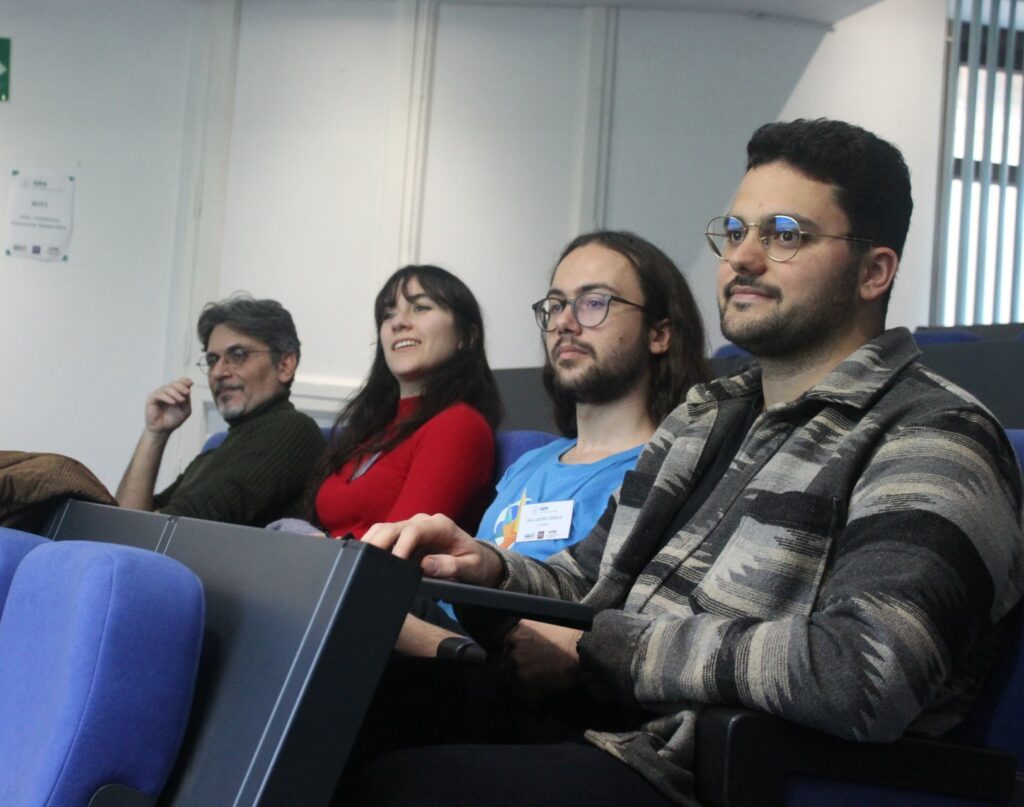Bridging Sustainability and Accessibility in the Green Transition:
Future Transformations in the Digital World
2-3 December 2024
Residència d’Investigadors, Barcelona and Online

Call for Papers
Now in its third edition, the Green Digital Accessibility conference focuses on the urgent challenge of building a sustainable and inclusive digital future for all, exploring innovative research and real-world practices across technology, communication, environmental science, and education. This conference serves as an important meeting point for researchers, industry leaders, policymakers, educators, activists, and anyone interested in accessibility and sustainability to discuss emerging trends and share insights to foster a sustainable and equitable future for all.
As we stand at a critical juncture between environmental collapse and technological evolution, it is important that the innovations we develop do not cost the earth. Technological advances, like remote working and teleconferencing technologies, as well as smart transport, hold immense potential for mitigating climate change and facilitating accessibility for people with diverse needs. However, concerns exist about the environmental footprint of the technology used to power these innovations, including e-waste and energy consumption.
More broadly, the digital world promises transformative solutions for tackling climate change, but also creates a risk of leaving many behind. As we adapt, how can we ensure fair outcomes for vulnerable groups, like the disabled, indigenous communities and refugees? What considerations are necessary to ensure that our efforts to mitigate the climate crisis do not widen existing social inequities? How can we ensure that technological developments applied to climate risk management do not leave out traditionally marginalised groups? What mechanisms can guarantee safety and dignity for those affected and displaced by climate change? How can we weave environmental responsibility and digital innovation into a sustainable future for a diverse range of people? These questions serve as the basis for discussions in this conference, prompting us to critically reflect and examine the potential of digital innovation as a pathway toward a sustainable future for all.
This conference focuses on the urgent need to bridge the gap between sustainability and accessibility in this crucial phase. It calls for the exploration of future transformation within the digital realm that ensure both environmental and social progress, leaving no one behind.
For this year’s edition, we invite submissions that explore the multifaceted dimensions of these concepts while looking towards the future of the digital world in the context of the green transition, with a particular focus on the role of accessibility.

Themes
Topics of interest include, but are not limited to:
- Theoretical Frameworks and Intersectionality
- Intersectional approaches to sustainability and disability.
- Intersectional approaches to disability and environmental activism.
- Intersectional approaches to disability and policymaking: Examples of disability inclusive climate action policies, and best practices.
- Intersectional approaches to climate justice for persons with disabilities.
- Perspectives on Sustainability and Accessibility
- Perspectives of people with disabilities on climate change.
- Disability inclusive climate action(s)
- Industry perspectives on sustainability and accessibility.
- Sustainable working practices in media accessibility.
- Design and Technology
- Best practice in sustainable and accessible design in traditional and digital media.
- Green Tech for All: Technologies that combine accessibility and sustainability.
- Sustainable use of Machine Translation.
- Green AI.
- Education and Communication
- Disability inclusive and accessible environmental communication.
- Disability inclusive and accessible environmental education.
- Technology, communication, and sustainable education initiatives.
Important dates
| Announcement of call for papers | 11 March 2024 |
| Submission of proposals deadline | 31 May 2024 |
| Notification of rejection/acceptance | 28 June 2024 |
| Early bird registration opens | 1 July 2024 |
| Early bird registration closes | 31 August 2024 |
| Standard registration opens | 1st of September 2024 |
| Standard registration closes | 1 November 2024 |
| Deadline for camera ready presentations | 25 November 2024 |
| Conference | 2-3 December 2024 |
Format
Following the successful hybrid format of last year’s edition, the conference will once again take place online and in-person, and include paper presentations and interactive workshops.
- Paper presentations will be limited to 15 minutes to facilitate discussion during dedicated panel sessions.
- Workshops are limited to 45 minutes, with 15 minutes allocated for questions at the end. Please note that given the interactive their nature, workshops will take place in person.
Please ensure your proposal fits with your chosen time slot and format. The conference language is English. Abstracts should not exceed 500 words, including bibliographic references.
Contacts
Email: transmedia.catalonia@uab.cat